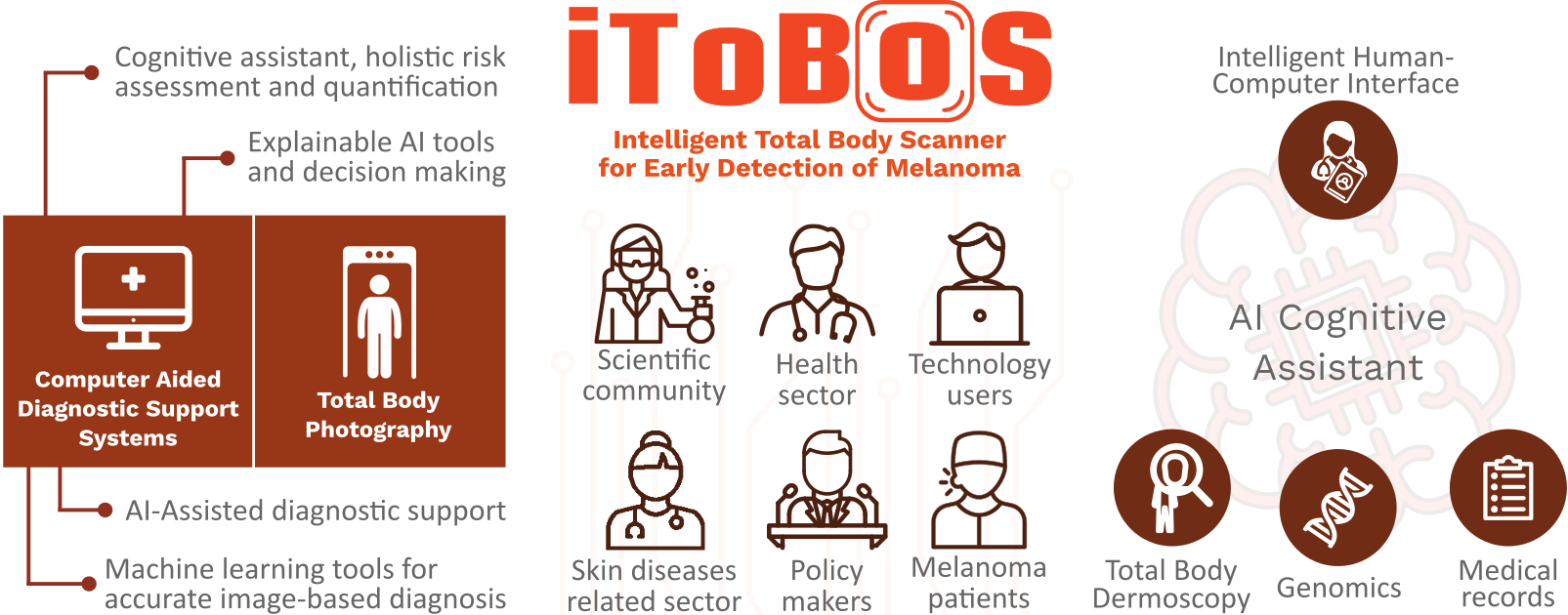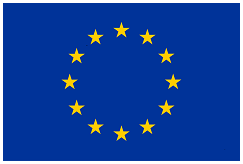iToBoS-EU-funded project aims to create a holistic diagnostic and assessment tool for early detection of melanoma

Skin cancer is the most common human malignancy and its incidence has been increasing in the last decade. Among skin cancers, melanoma constitutes the main cause of death. According to the latest statistics, cutaneous melanoma is currently the sixth most common type of cancer in Europe. Fortunately, melanoma can be cured if treated at an early stage. More than 90% of melanoma patients are still alive after 5 years, if treated early. But once the distant spread of cancer cells occurs, known as metastatic melanoma, the proportion of patients alive after 5 years can be as low as 23% or worse. For these reasons, rapid diagnosis is essential to ensure treatment is undertaken before local and metastatic spreading occur.
IBM Research – Haifa is part of the iToBoS research project funded by the European Union's Horizon 2020 research and innovation programme. iToBoS, short for Intelligent Total Body Scanner for Early Detection of Melanoma, is aimed at building a new diagnostic tool for the early detection of melanoma, exploiting all the available information of the patient. This holistic assessment tool will be designed to understand the specific characteristics of every patient and thereby enable personalized, early detection of melanoma. The project has a duration of 48 months (1 April 2021-31 March 2025) and a total budget of 12 million Euro.

The vision of the iToBoS project is to train an Artificial Intelligence (AI) system to integrate information from different sources, ranging from dermoscopic images and complete medical records to genomics. iToBoS will develop and validate a new diagnostic device together with an AI cognitive assistant (tool) to empower healthcare practitioners to make comprehensive patient-tailored diagnosis of skin cancer, leading to improved detection rates and highly personalized diagnosis. This new diagnostic tool will use the most recent advances in AI to facilitate the usage of any data already obtained with current technologies (dermoscopic images) together with the data acquired using the novel hardware proposed in iToBoS.
The project’s underlying algorithms will integrate any additional patient information from various sources (e.g., patient medical history, genomics, location of every naevus, age, sex, etc.) with the goal of providing a holistic assessment of individual moles while considering the specific characteristics of each patient. With systematic successive explorations of a patient, the system will be able to also robustly determine the changes occurring in the individual moles, a key feature held as one of the most informative in the detection of skin cancer. The proposed holistic approach will enable physicians to diagnose skin diseases earlier and with higher accuracy, thus increasing effectiveness and efficiency in personalized clinical decision making.
IBM Research – Haifa is contributing to iToBoS by providing technology and tools for preserving privacy and enabling compliance of the project data and AI models with relevant data protection regulations. We will be providing tools for the masking and anonymization of datasets, as well as anonymization and data minimization for the AI models generated in the project. This contribution will ensure that any data or models shared outside the consortium do not disclose any private, sensitive, information belonging to the data subjects participating in the project’s clinical studies.
The consortium with 19 partners organizations is led by the University of Girona (Spain). This international consortium brings together leading research/ academic institutions (5 research centers), industries (4 companies and 6 SMEs) and end-users entities (3 hospitals and 1 patients’ NPO): University of Girona (Spain), Optotune Switzerland AG (Switzerland), IBM Israel-Science and technology Ltd (Israel), Robert Bosch España Fábrica Madrid SA (Spain), Barco NV (Belgium), National Technical University of Athens-NTUA (Greece), Gottfried Wilhelm Leibniz Universitaet Hannover (Germany), Fundació Clinic per a la Recerca Biomédica (Spain), Ricoh Spain IT Services SLU (Spain), Trilateral Research Limited (Ireland) Universita degli Studi di Trieste (Italy), Coronis Computing SL (Spain), Torus Actions (FR), V7 LTD (United Kingdom), ISAHIT (France), The University of Queensland (Australia), Szamitastechnikai es Automatizalasi Kutatointezet (Hungary), Fraunhofer Gesellschaft zur Foerderung der Angewandten Forschung E.V. (Germany), Melanoma Patient Network Europe (Sweden).
